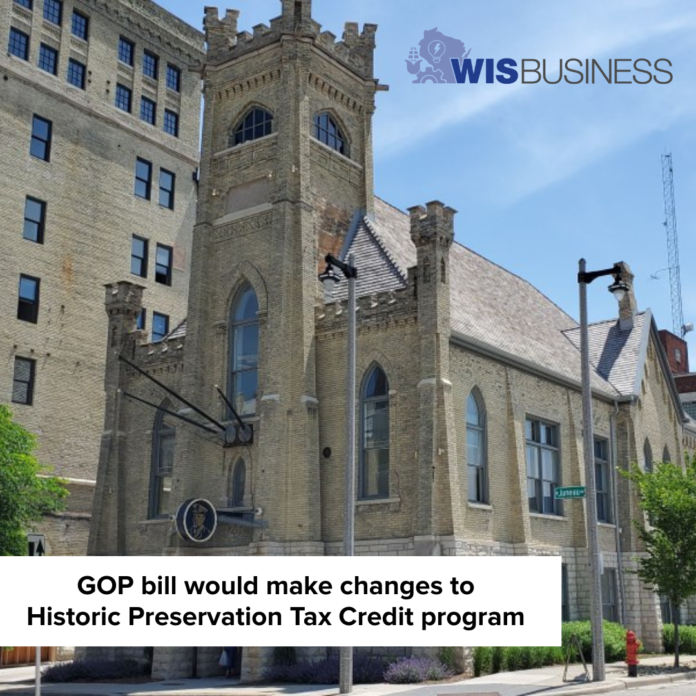A bill being circulated by GOP lawmakers would make changes to the state’s Historic Preservation Tax Credit program, which authors say will ensure it remains “an important, useful resource.”
Sen. Dan Feyen, R-Fond du Lac, and Rep. David Armstrong, R-Rice Lake, recently sent a cosponsorship memo to other lawmakers seeking support for the legislation.
The tax credit is used by property owners to offset the cost of rehabilitating qualifying “historic” properties, in addition to a similar tax credit at the federal level. The credit only applies to income-producing buildings such as hotels, housing developments and other businesses, according to the Wisconsin Economic Development Corp., which oversees the program.
“Many Wisconsin businesses occupy historic properties that contribute to the character and attractiveness of their communities … However, various changes in state and federal law over the years have created some confusion about which properties and expenditures qualify for the credit,” the lawmakers wrote. “This has led some worthwhile rehab projects to be canceled or postponed.”
Under Wisconsin’s historic rehabilitation tax credit, recipients can claim up to 20% of the qualified rehabilitation cost as long as those expenditures exceed $50,000 and are “at least the greater” of the property’s adjusted basis value or $5,000.
The bill would eliminate the adjusted basis value provision, only requiring that project costs exceed $50,000 for the purposes of the credit, the memo shows.
“A property’s adjusted basis value can be very large, pricing most projects beyond feasibility for many owners,” authors wrote, arguing their bill would bring “the law in line with earlier interpretations.”
It would also make a change to an existing per-parcel cap of $3.5 million in credits. Authors note the way the current statute is written suggests that no parcel can get more than this amount in cumulative credits ever, “regardless of the size or number of future rehabilitation projects” at the site. Under the bill, the cap would be applied to 10-year periods moving forward.
Meanwhile, the bill would also simplify the certification process for properties where the owner is only claiming the state-level tax credit, the memo notes. And it would allow owners to claim the full credit for the year in which the property is put into service, as opposed to the “default” federal process of spreading the credit out over a five-year period.
“This will allow the credit to have a bigger impact,” authors wrote.
The cosponsorship deadline is 5 p.m. Thursday.






